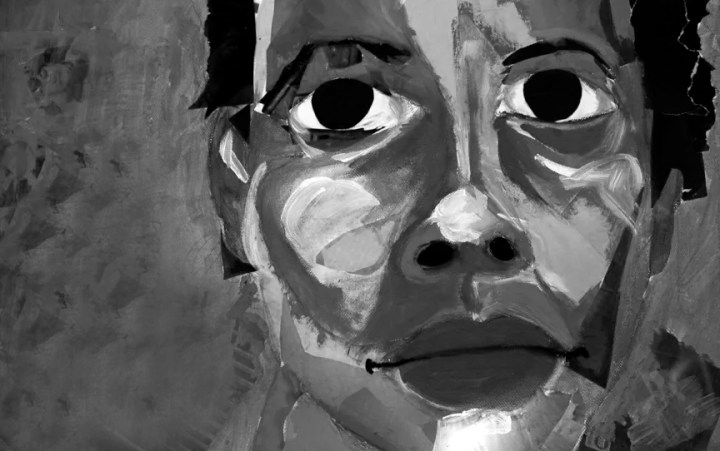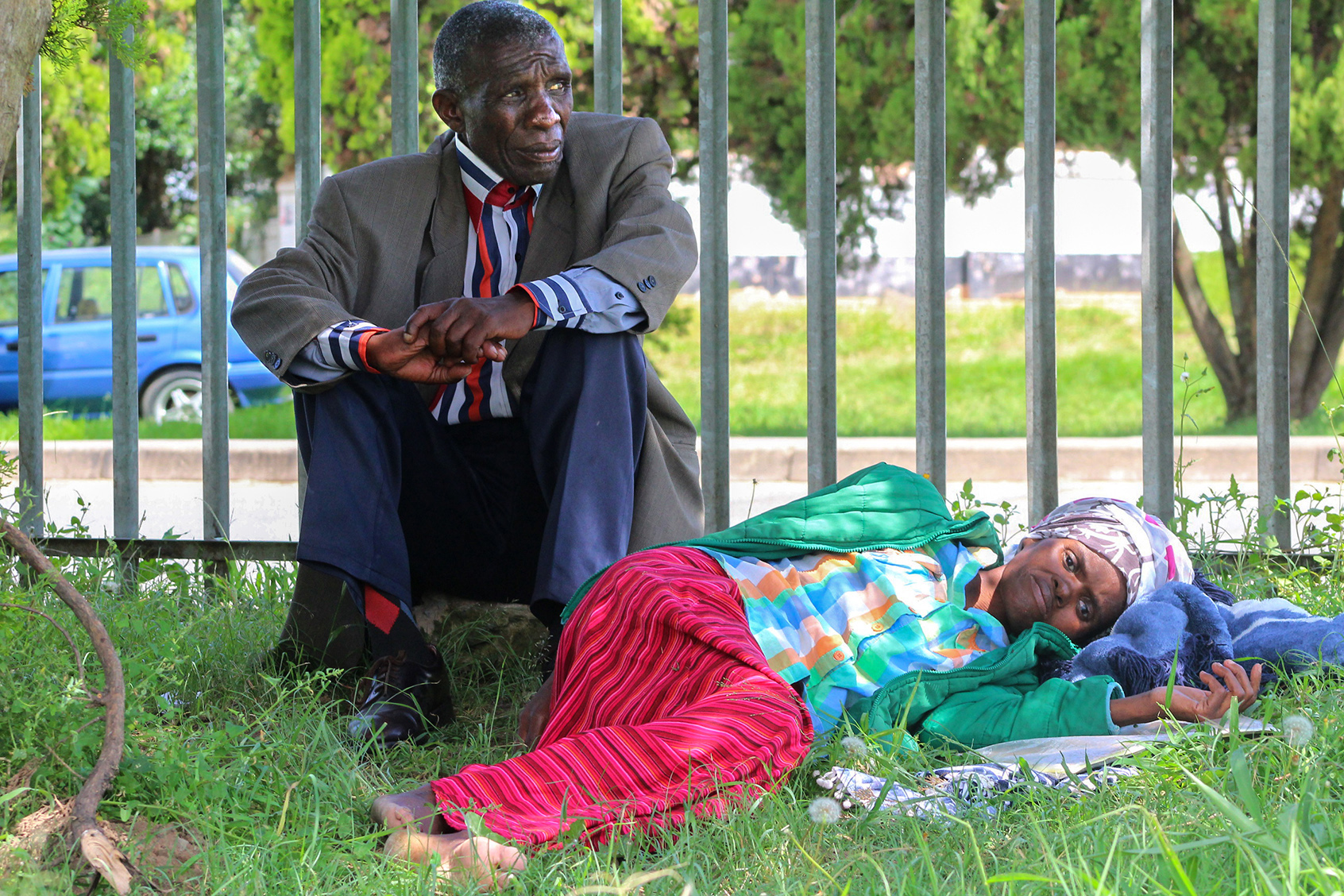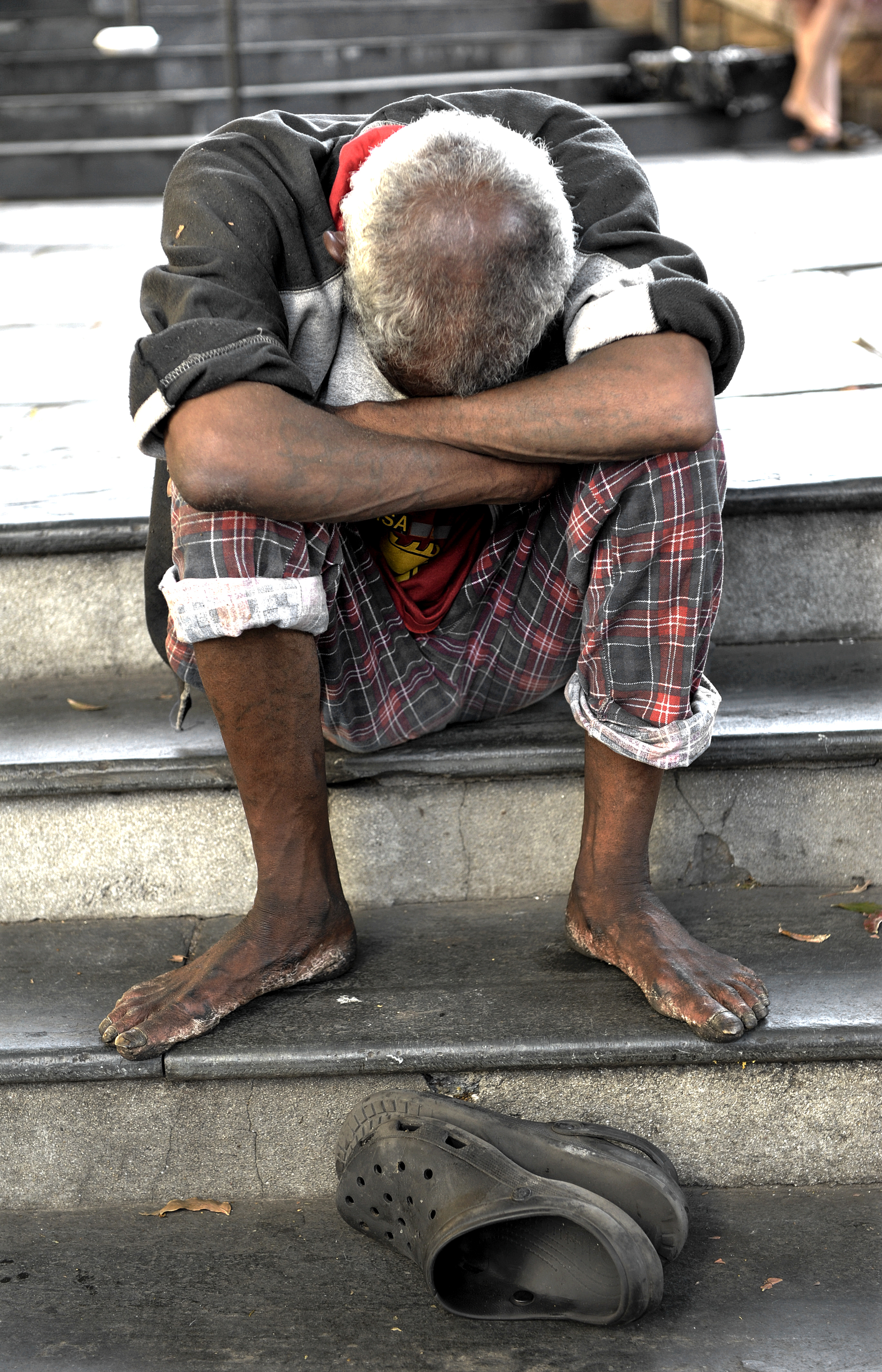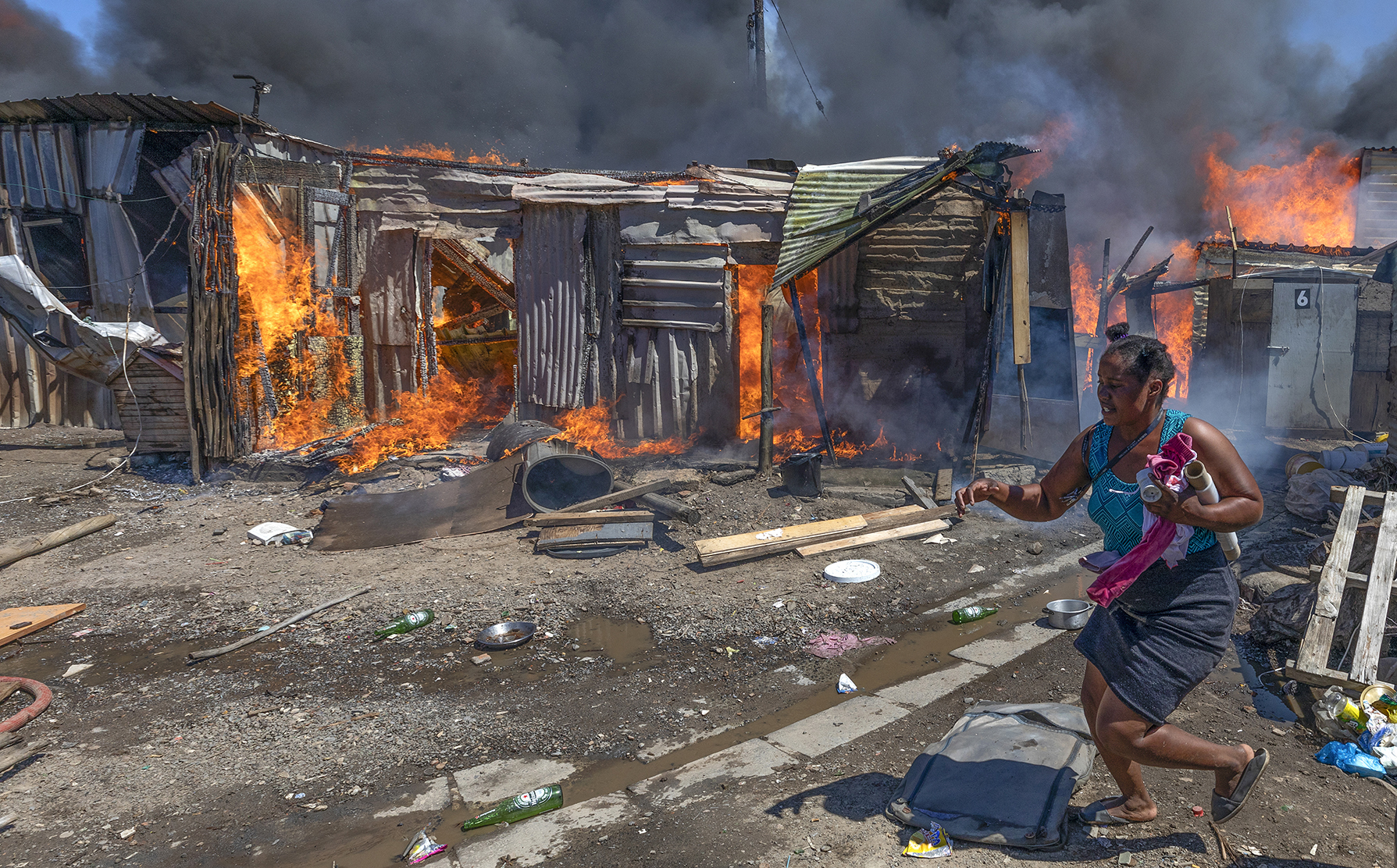TUESDAY EDITORIAL
South Africans in a rage – can we work together and overcome the trauma within us?

Trauma is defined as ‘a lasting emotional response that often results from living through a distressing event. Experiencing a traumatic event can harm a person’s sense of safety, sense of self, and ability to regulate emotions and navigate relationships’. This sounds like an apt description for our country as a whole.
There must be few countries in the world that punch so far below their weight as South Africa. We are a country with much of what we need to fix our problems and realise our Constitution’s promise of human rights, equality and social justice. We have infrastructure, financial means, human resources, a favourable climate and geography, and a Constitution that mandates the creation of a fair and equal society.
We have intelligence, resilience, imagination and a proud heritage of struggle.
Yet we’ve been on a downward slide for more than a decade.
Occasionally we see glimpses of our greatness – in sport, in science and academia, in the arts. Civil society expends enormous energy at the coalface of crises. But we rarely rise and lead as a collective anymore. As a result we seem unable to make progress on any of the social challenges that bedevil our country.
In fact, on most indices we are dangerously regressing.
Working out why has become something that wakes me up at night. Recently I came to the conclusion that a lot of the problem lies in the antisocial, divisive and destructive behaviours of South Africans in all spheres of life and leadership, and that that in turn is related to the trauma within our society.
Why can’t we work together anymore?
What antisocial behaviours? You know what I’m talking about.
At its most obvious it’s the epidemics of corruption and exploitation that steal not from the rich, but from the poor. It’s acceptable to criticise the politicians but still underpay your domestic worker.

A boy discards wastewater next to his shack in Khayelitsha, Cape Town, on 31 March 2020. (Photo: PA-EFE / Nic Bothma)
But it’s also evident in the violence that characterises strikes and protests, crime and interpersonal relations. It’s so bad that Annah Moyo-Kupeta, the director of the Centre for the Study of Violence and Reconciliation, calls violence “our 12th official language”.
It was on display again on Monday in a strike by members of Nehawu where some nurses have chosen to vent their legitimate anger on the weakest among us.
Who benefits from harming the most defenceless, the righteous might ask? But that’s a hypocritical question. We are all doing it.
On a more mundane, but sometimes equally damaging level, it’s evident in all our institutions of governance. The Constitution, correctly envisaged a society where the government continually interacts and consults with the people. That’s the purpose of Parliament, and a host of bodies like Nedlac. But they can’t work where there’s no trust. So, consultation has become about debilitation: it’s about identifying differences, rather than agreements, reasons for inaction rather than action, breaking down rather than building up.
We literally consult projects to death, seeking the elusive lowest common denominator.
The Just Energy Transition Partnership risks being the latest casualty. A year ago at COP26, $8.5-billion (about R30-billion) was committed to funding the country’s transition away from coal. But since then implementing the plan has been held to ransom by vested interests, the perfect is delaying the good and people who could benefit from jobs and clean air and clean energy are left in limbo while politicians and stakeholders fiddle.
You wouldn’t think we were a country with mass unemployment and mass poverty the way we fuck around.
A collective breakdown brought on by trauma
But how do we explain this antisocial behaviour?
South Africa exhibits all the symptoms of a society going through an undiagnosed breakdown brought on by concurrent acute, chronic and complex traumas.
Where has this trauma come from? The answer is we’ve been carrying it for a long time, but it’s been spreading and getting worse.
Perhaps our founding mistake was when we imagined that after 1994 the Truth and Reconciliation Commission (TRC) was all we needed to do to acknowledge the violent trauma millions of people had suffered under apartheid, and that we could move on, on the basis of an illusory rainbow.
Visit Daily Maverick’s home page for more news, analysis and investigations
Medical scientists point out that trauma doesn’t just evaporate. Intergenerational trauma gets passed on in utero.
But since 1994 the trauma has metastasised. Three million people died of Aids, 25,000 people were murdered last year. Our country is at war with women, girls and children. Covid-19 has caused 340,000-plus “excess deaths” and a generation of hope. These may be macro traumatic events, but each has a bearing on millions of individual lives and influences behaviours and values.

Angry Monwabisi Mesilani and his wife Nombulelo Qhinga outside Nelson Mandela Hospital in Mthatha, Eastern Cape, after being told to go back home amid the Nehawu strike on 6 March 2023. (Photo: Hoseya Jubase)
I have a friend, Phumzile Msami, who sells newspapers on the street at the entrance to Wits University. She’s done so for 20 years. That way she’s managed to put her two children through university. But now her son, a University of KwaZulu-Natal-trained social worker, is unemployed.
That’s trauma.
Read in Daily Maverick: “The dignity of the damned”
The growing number of homeless people sheltering in parks while living alongside multimillion-rand homes is trauma.
Read in Daily Maverick: “Why can’t we live together? The conflict between suburbanites and the homeless in a Johannesburg park”
To test this midnight thesis out I consulted the experts and found that they largely concurred.
On World Trauma Day in 2022, the Psychological Society of SA (PsySSA), for example, described our country as “one of the few countries globally that has endured protracted political violence as well as high rates of criminal violence, domestic abuse, and accidental injury”. They say “this translates into South Africans being widely and commonly confronted with primary and secondary accounts of traumatic stressors, both in their everyday lives and in the mass media. For many South Africans, the stress of living in conditions of continuous traumatisation is compounded by the chronic anxiety wrought by severe economic deprivation.”
Cassey Chambers, the director of the South African Depression and Anxiety Group, told me that an online survey they had just completed with more than 1,800 people about the effects of rolling blackouts on mental health, revealed “60% of people reporting increased levels of anxiety, anger, panic and frustration, which led to anger outbursts and even road rage”.

A homeless man in front of St George’s Cathedral in Cape Town. (Photo: Joyrene Kramer)
Psychologists and psychiatrists are reporting rapidly rising levels of mental illness, anxiety and depression. But we treat these as personal, not political matters.
Chambers says that “all of this stuff is bubbling up and creating a vicious cycle” telling me that “experts on the long-term impact of not treating trauma, and not treating historical trauma… equate it to the same trauma impact as a genocide”.
What can we do?
The PsySSA recommends that “amid precarious times, we encourage mutual support among community members, relatives, friends, colleagues and even strangers”. They say “support will go a long way to bring comfort and relief to distressed individuals. Knowing that someone cares and is willing to listen to one’s experiences is a crucial feat in healing.”

A resident salvages belongings as a fire rages through shacks in Masiphumelele, Cape Town, on 21 November 2022. (Photo: EPA-EFE / Nic Bothma)
My conclusion is that unless we recognise the trauma within us, and develop personal and public strategies that act to overcome it, we will not be able to work as a collective to overcome our crises. We can rage, demand and condemn, but there’s something deeper and we are part of the problem.
This all brings us back to some of what I’ve been trying to communicate lately about compassion and kindness.
Read in Daily Maverick: “Where’s your compassion?’ It may just save your life”
We can keep on calling on a broken government and political system to act, but we know it won’t. We need system change, but that system change is going to have to be built from below through small acts of compassion, kindness and justice that show that we see each other and help us to learn to talk rather than shout, share rather than steal, fix rather than further divide. DM/MC
Further reading:
“The New Barbarism; The importance of uhuru, ubuntu and ujamaa in overcoming colonial trauma”
“Rolling in the deep: national nihilism is our creed”



















Germany went through far worse trauma during the second world war than SA ever has. However, after the war they had great leadership, faced their challenges and worked hard to rebuild their shattered country. Which they have done with extra-ordinary success. Our ANC leadership has been incompetent at best and actively destructive at worst. Small acts of kindness (although helpful of course) are not going to cut it – we need the removal of the criminal syndicate called the ANC that is at the root of our crisis.
Our capacity for humility is under siege each day in South Africa!
Japan and Germany were smashed to smithereens in the 2ndWW and yet within 20 years they had rebuilt their respective countries and today rank in the top 5 on any metric. What was the magic bullet? I suspect pride, intellect and belief in a shared destiny were the pillars.
The comments about Japan and Germany are true but I think we’re glossing over a few important differences:
– Japan and Germany had high levels of education at all levels of society before WWII
– Both of them, especially Japan, had a highly homogenous population, again in the years immediately after the war
South Africa while having amazing potential, also suffers from a long-running legacy of creating an impoverished citizenry in its midst to fuel the engines of the Dutch and then the British colonial economies. It’s a complex issue to solve and to be sure there is much finger-pointing brought on by the fact that South Africa as a whole has struggled to solve it.
I think this is the point of the article and its call that, only through the recognition that only through collective action, will this issue be resolved.
The only way we willget system change is to vote out the useless and corrupt ANC government.
I agree with the diagnosis: We experience trauma on a daily basis in so many forms described in the article. However, the loss of the moral compass is now so widely spread throughout society that it will take a major revolt to turn us around. We are headed the Zimbabwe route: Incompetence and corruption is so entrenched in all levels of government, with a large number of beneficiaries, that the ANC will not self-correct. No new leader guided by values and sound principles, will be allowed to rise to the top. The recent cabinet reshuffle showed the depth of the track the ANC is running in.